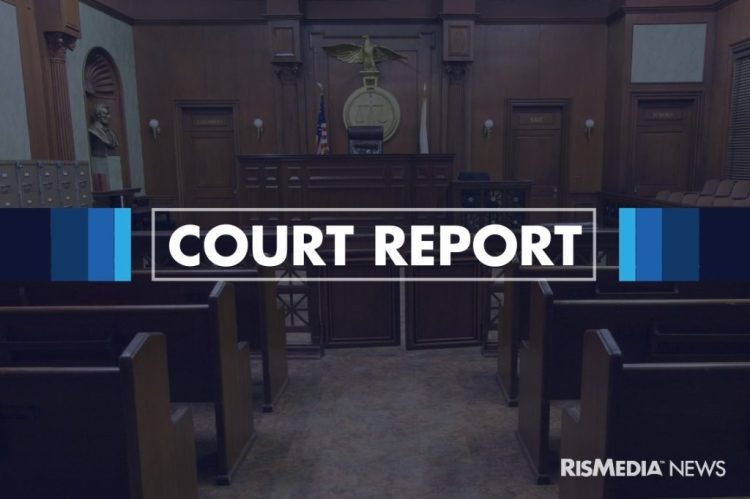The COURT REPORT is RISMedia’s weekly look at current and upcoming lawsuits, investigations and other legal developments around real estate.
FTC sues Zillow and Redfin, with states following the lawsuit lead
On Sept. 30, the Federal Trade Commission (FTC) filed a lawsuit against listing portals Zillow and Redfin over an alleged anticompetitive agreement.
The $100 million deal, announced in February 2025, allowed Zillow to post rental listings on Redfin’s website with the ostensible goal of boosting Redfin traffic.
But according to the FTC, the deal “(transformed) Redfin from an independent and vibrant competitor that markets and sells its own ILS (internet listing service) multifamily advertising into one of several websites that provide nothing more than a copy of Zillow’s ILS listings,” the filing read.
Following the suit, the attorneys general of Connecticut, Arizona, Washington, Virginia and New York also filed a lawsuit to block the deal. Connecticut AG William Tong said that “unfair and anticompetitive agreement” would “jack up costs for property managers, who will pass those costs on to renters.”
In statements previously supplied to RISMedia by company spokespersons, both Zillow and Redfin disagreed with the criticisms of the deal as anticompetitive and promised to fight the suit in court.
“By the end of 2024, it was clear that the existing number of Redfin advertising customers couldn’t justify the cost of maintaining our rentals sales force. Partnering with Zillow cut those costs and enabled us to invest more in rental-search innovations on Redfin.com, directly benefiting apartment seekers,” said the Redfin spokesperson.
Plaintiffs in Howard Hanna class-action suit filed second amended complaint
Plaintiffs in the buyer class-action commission lawsuit Davis V. Hanna Holdings (parent company of Howard Hanna), filed in the Eastern District of Pennsylvania, have filed a second amended complaint on the lawsuit, once more requesting a jury trial.
Originally filed in May 2024, the case is another antitrust lawsuit filed by the same lawyers behind the original buyer commission lawsuits and alleging a conspiracy between NAR, member brokerages, local associations and MLSs.
The recently filed amended complaint reads that industry practices, such as association membership being needed for MLS access, are “anti-competitive rules that encouraged overuse of buyer agents, increased their cost to homebuyers and reduced the quality of their services. The net result of Defendant’s conspiracy was that buyers overpaid for their homes.”
In June 2025, Judge Wendy Beetlestone overseeing the case had ruled the plaintiffs had presented a plausible case for a vertical conspiracy between NAR and Howard Hanna, but did not have evidence for claims of a horizontal conspiracy (i.e., that Howard Hanna was conspiring with other brokerages, its direct competitors).
The filing of the second amended complaint had been opposed by Howard Hanna; their letter cited Beetlestone’s ruling that, per precedent, joining a trade organization and enforcing its rules “does not plausibly establish the existence of a prior and separate horizontal agreement among competitors.”
The amended complaint reiterates claims of a horizontal conspiracy, with a section detailing allegations that such an agreement existed between Hanna and alleged co-conspirators prior to NAR’s (since reformed) requirements for cooperative compensation in MLS listings. The pertinent section of the allegation reads:
“Real estate agents first agreed among themselves to set and abide by mandatory commission schedules; when that proved untenable, NAR’s membership of competing brokers required unilateral offer of cooperation and compensation to subagents working with homebuyers even though they owed fiduciary duties to the selling agent,” after which NAR membership developed and enforced requirements for compensation to be included on MLS listings, the complaint continued.
Appraisal Institute faces new licensing complaint
The Illinois Department of Human Rights, in August 2025, filed a complaint against the Appraisal Institute, as reported by Bisnow.
The process to earn a Member of the Appraisal Institute designation is overseen by an individual called an experience screener, and requires 4,500 hours of “specialized experience.”
According to records from the California Bureau of Real Estate Appraisers—and allegations from former part-time experience screener Jennifer Marshall—the Institute’s head experience screener Gilbert Valdez has not had an active appraisal license since 2018.
“To have people who aren’t, in my opinion, qualified (to be experienced screeners) because they no longer have a credential, it puts a huge risk on us,” said Marshall to Bisnow.
Alissa Akins, the Institute’s former director of education and publications, filed a lawsuit earlier this year claiming she was terminated after reporting to superiors that the Institute had been misrepresenting test scores to regulators and state agencies. Akins filed an amended complaint this September, which included new allegations of sexual harassment; in May 2025, the New York Times reported on sexual harassment complaints against the Insitute’s former president and current vice president Craig Steinley, including one $412 million settlement paid.
In its response to the amended complaint, filed on Oct. 3, the Institute largely denied the allegations made in the complaint.












